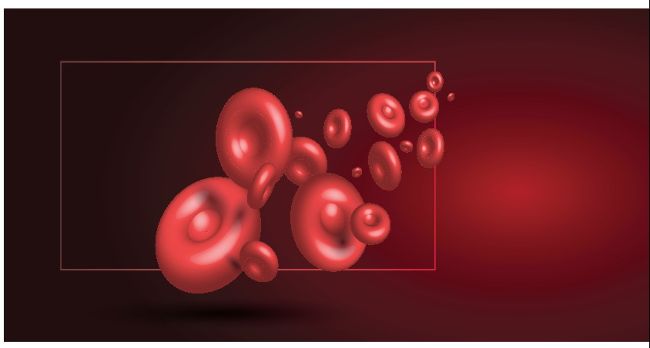Everything You Know about Being Rh-Negative Is Wrong
There are numerous claims regarding the Rh-negative blood type’s origin, association with physical and personality traits, and potential disease resistance. Science does not support these claims.
D. ELLEN K. TARR
The “+” or “-” following the ABO blood type indicates the presence or absence of a protein on the surface of human red blood cells (RBCs) that is referred to as the “Rh factor” (Rh for Rhesus); however, this protein is not found on the surface of Rhesus monkey RBCs. The human protein was renamed to “D antigen” over fifty years ago, but the original term and its connotations of a factor specifically shared between Rhesus monkeys and some humans have remained in use, despite the inaccuracy. The function of this protein was not immediately apparent, and there is a great deal of speculation on the implications of being Rh-negative versus Rh-positive. These include: nonhuman/extraterrestrial ancestors, associations with physical traits, high IQ,sensitivity to psychic/paranormal phenomena, and disease resistance. The sense that Rh-negative individuals are special persists despite the lack of scientific data. My goal in this article is to address various claims regarding being Rh-negative.
Associations between Rh-Negative Blood Type and physical Traits
Websites discussing the Rh-negative blood type have a general list of “known” associations: blue, green, or hazel eyes; red or reddish hair; low body temperature; low pulse; low (or high) blood pressure; extra rib or vertebrae; vestigial tail; larger than average head/forehead; unexplained body scars; unclonable blood; heightened senses; sensitivity to heat/sunlight; and the ability to disrupt electrical appliances. I have not found any scientific articles that corroborate these “known” associations. As I’ll demonstrate, a founder effect likely played a role in the greater proportion of Rh-negative individuals in European populations, and it is possible this also influenced the prevalence of other traits.

Red hair in humans is associated with changes in the melanocortin 1 receptor (MC1R) gene. MC1R plays a role in the relative expression of the pigments eumelanin (brown/black) and pheomelanin (red/yellow), and thus far it is the only gene that explains the normal variation in human pigmentation (Valverde et al. 1995; Rees 2000). Low eumelanin compared to pheomelanin is also responsible for fair skin that tans poorly, which reflects a decreased need for protection from ultraviolet radiation in climates with less sunlight and an increased need to absorb sunlight for Vitamin D production. The genetics of MC1R in hair and skin color have been reviewed (Rees 2003), and the variants conferring red hair occurred up to 80,000 years ago (Harding et al. 2000). Some Neanderthals had MC1R alleles that would have resulted in fair skin and red hair; one is likely Neanderthal specific (Lalueza-Fox et al. 2007), while another is shared with modern humans and may have originated in Neanderthals (Ding et al. 2014).
The major gene involved in blue vs. brown eye color is OCA2, which encodes a protein important for normal pigmentation. There are many variations affecting eye color, but a specific single nucleotide change in the upstream HERC2 gene inhibits OCA2 expression in the iris, leading to blue eyes. Nearly all blue-eyed individuals have this mutation, which may go back to a single individual in the Black Sea region living 6,000 to 10,000 years ago (Eiberg et al. 2008). Several other genes contribute to variation in eye color (none as influential as HERC2-OCA2), and a recent study shows positive selection for lighter skin, hair, and eyes in Europeans over the past 5,000 years (Wilde et al. 2014).
The perceived association between Rh-negative blood type and red hair, light eyes, and sensitivity to sunlight is probably due to shared European ancestry. An association between traits does not imply that one causes the other. A recent study of blood type, hair color, and eye color in relation to sexual orientation found that both male and female homosexuals are more likely to be Rh-negative, although the statistical test fell just short of significance (p=0.06). The conclusion is not that these two traits have a direct connection but that some genes influencing sexual orientation may be on the same chromosome as the D antigen (Ellis et al. 2008).